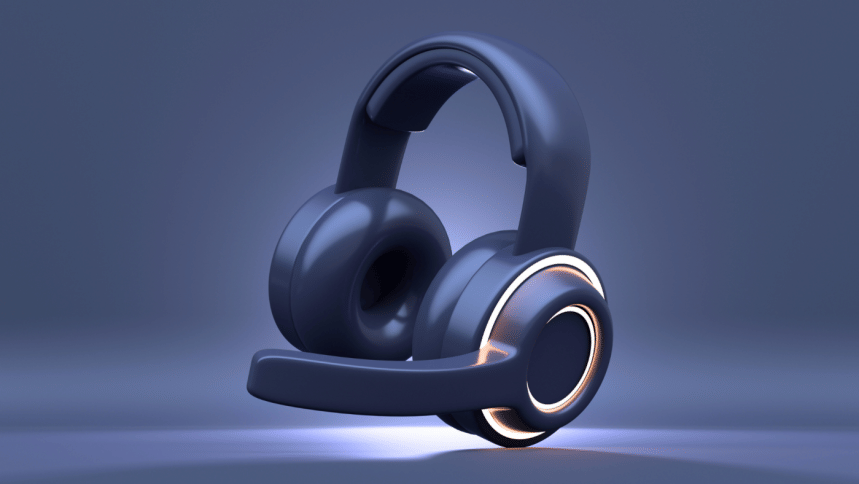
Imagine a scenario where you miss a sound cue, and your enemy catches you off guard. You get killed and lose the game. Frustrating, right? A good gaming headset can make the difference between victory and defeat.
But how do you pick the one that suits you best, with so many gaming headsets on the market, with so many factors to consider? This guide will present knowledge accumulated over the years along with recommendations to assist you in making an informed decision. Build quality The build quality of a gaming headset depends on the materials, design, and craftsmanship of the product, which is crucial for its durability and performance. You may think that plastic means bad quality, but it is lightweight, flexible, and surprisingly durable.

Some headsets throw in a bit of metal for that premium feel, but don't let that sway you. Focus on the overall design and construction rather than just the materials. Specs aren't everything Specs are cool, but they're not the whole story.
Two headsets may look identical on paper—but they can sound worlds apart. There are three crucial aspects to consider. The first is the tuning of the driver , which influences frequency response and is arguably more important than the driver size.
For example, the Logitech G Pro X uses 50 mm graphene drivers to reduce distortion, while the smaller 40 mm drivers in the Logitech G733 still deliver killer sound due to the tuning. The next aspect, sensitivity , which is measured in decibels per milliwatt (mW), is a measure of how loud a headset can get. Higher sensitivity provides finer volume control and louder sound at the same power level.
For example, a headset with 110 dB/mW sensitivity is 10 dB louder than one with 100 dB/mW at the same power. However, loudness also depends on impedance (measured in ohms). Impedance affects the damping factor, which in turn influences the precision of the audio.
A higher-impedance headset delivers tighter and more accurate sound. The third aspect, bit depth and sample rate , are especially critical for wireless and USB headsets. Bit depth is like the resolution of your audio, while the sample rate is like its frame rate.
Higher bit depth and sample rates offer better audio quality, with 24-bit audio providing more dynamic range than 16-bit. Understanding audio concept When you research gaming headsets, you will encounter terms like Sound Stage, Sound Imaging, and Sound Signature. Here's what they mean.
Sound stage is how wide or immersive the sound appears. A good sound stage makes audio feel like it's surrounding you, enhancing immersion and spatial awareness. Sound imaging is the quality and accuracy of positional audio which helps you pinpoint where sounds are coming from, like footsteps behind you.
Sound signature is the flavour of your audio—how the bass, mids, and highs are balanced. Stereo vs surround sound Choosing between stereo and surround sound is a matter of preference. The stereo sound format uses two channels to create a directional sound.
It preserves the original sound quality, accuracy, and details of the game, making it excellent for precise positional cues, which is why gamers who prioritise accuracy over immersion prefer it. Surround sound uses multiple channels to offer a more immersive experience by simulating sounds from various directions. While it enhances spatial awareness and immersion but may introduce distortions, compromising audio accuracy.
There are three types of surround sound. Virtual Surround Sound, one of the types of surround sound, is a software-based technology that uses algorithms to simulate a surround sound effect from a stereo source. While virtual surround sound can imitate Dolby Atmos and DTS, it may not match the quality of the real thing.
Dolby Atmos and DTS, the other two types, both are hardware-based technologies that use dedicated speakers or drivers for surround sound. They offer more accurate and realistic effects by supporting more channels and precise sound positioning. Closed-back vs open-back Closed-back headsets seal off your ears from external noise and provide better immersion and sound isolation.
These headsets offer the most direct and accurate audio presentation and also help locate the direction and distance of the sound sources easily. However, they can cause discomfort due to heat and moisture trapped in the ear cups. Open-back headsets allow air and sound to pass through, creating a more natural and spacious sound, with a wider soundstage.
You can detect sound cues and their position and direction in the game, but they may not be as precise or detailed as with closed-back headsets. They leak sound both ways but are more comfortable for extended sessions. Mic quality: Does it matter? Yes, it does.
A high-quality microphone is crucial for clear communication in multiplayer games. You need a good headset that can deliver clear and immersive sound, as well as capture your voice to sound natural and crisp. Features like detachable or retractable mics, noise cancellation, and some gaming headsets also have a feature called sidetone (so you can hear yourself) can greatly enhance your gaming experience.
Cross-platform compatibility Whether you're on PC, console, or mobile, you need a headset that plays nice with all your gear. Any headset with a 3.5 mm jack will work with any platform that accepts an analogue connection but may not support features like surround sound and RGB lighting.
USB headsets are more versatile, as they can support more features and deliver better sound quality. Wireless headsets offer more mobility but may have compatibility issues due to different wireless technologies. Just make sure your headset is compatible with your setup.
Wireless or wired? Wireless headsets are all about freedom—no cables to tie you down. Some wireless headsets can double as wired ones, providing the best of both worlds. However, the two main disadvantages with wireless headsets are price and battery life.
Wired headsets, on the other hand, deliver better sound quality and reliability without the hassle of charging. COMFORT is king! Let's get real—comfort is the real deal. Here is what to consider.
When choosing ear cups, consider breathable materials that don't compromise audio quality. Hybrid materials offer comfort but may wear out quickly. Avoid leather-like options—they can get hot and sweaty.
Also, consider the thickness and density of the foam, though these are hard to judge from the description. The shape of the ear cups—round or oval—affects comfort and fit. Round cups provide even pressure and good sound isolation but may cause more heat and sweat.
Oval ear cups are more ergonomic, and offer better fit and airflow but may create tension near the jawline. Removable and replaceable ear cups are a big plus. They allow for easy cleaning, replacement, and even customization with different materials or shapes.
The balance of a headset's weight and the pressure it exerts on your head plays a crucial role. A high clamping force can increase the perceived weight, whereas less force can make it seem lighter. If it feels too tight, try stretching it overnight on a box or pillow.
An ideal headband evenly distributes weight to avoid discomfort. Look for adjustable headbands with flexible hinges and soft foam padding for optimal comfort. Swivel joints enhance adjustability and ease of carrying, but they may reduce stability.
If stability is your priority, it might be best to avoid them. Cable noise can ruin your listening experience by transmitting the friction of the cable rubbing against your clothes or other objects directly to your ear cup. Braided cables tend to amplify this noise.
Final thoughts When it comes to gaming headsets, it's tempting to go for the cheapest option, but remember, you get what you pay for. Buying a good gaming headset is an investment, so take your time, do your research, and choose wisely. So, if you're on a budget, the Logitech G335 is your best bet.
Need wireless freedom? Check out the Logitech G435. If you're an audiophile? Logitech PRO X is a top tier. Finally, the Logitech G733 is for those willing to invest in something more substantial.
Happy gaming!.














